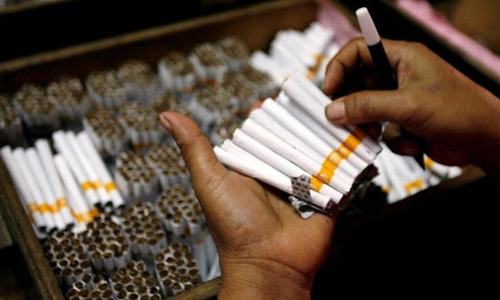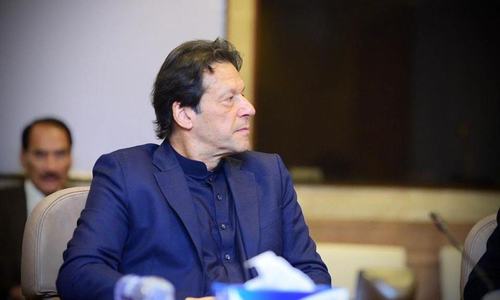ISLAMABAD: While anti-tobacco advocates have been criticising policies of the government and its failure to implement the Pictorial Health Warning (PHW) due since June 30, 2020, the World Health Organisation (WHO) regional office for the eastern Mediterranean has announced the World No Tobacco Day 2021 Award for Pakistan for its effective anti-tobacco campaign.
Former technical head of the Health Ministry’s Tobacco Control Cell (TCC) and Focal Person for WHO’s Framework Convention on Tobacco Control (FCTC) Dr Ziauddin Islam said the award had been given to Pakistan due to efforts made during the last decade.
WHO was asked to nominate individuals or organisations from each of the six WHO regions for their accomplishments in controlling tobacco use. It was confirmed that the international award will be given to the Ministry of National Health Services (NHS) on ‘World No Tobacco Day – Commit to Quit’ which will be observed on May 31 across the globe.
The secretariat of FCTC had already recognised the Smoke Free Islamabad model internationally by displaying a picture of Rose and Jasmin Public Park on the title page of its annual report. Pakistan is being lauded for implementing the ‘M’ measures (monitoring of tobacco use policies) in the MPOWER package to the highest level.
The health ministry, prior to receiving this award, had been facing criticism over disbanding the TCC whereas a parliamentarian, who defended tobacco companies in parliamentary committee meetings, became a member of the policy board of Federal Board of Revenue (FBR). Moreover, Prime Minister Imran Khan was going to attend an event organised by a tobacco company on May 21 and the ministry remained quiet about it.
According to a statement issued by the health ministry, the TCC is working better under the director general (health wing) since July 2020. It has been organising smoke-free initiatives, acknowledged by WHO. Furthermore, it must be pointed out that NHS promulgated a statutory regulatory order (SRO), through which all types of tobacco advertising, promotions and sponsorship (TAPS) were banned on point of sale even on social media.
“Pakistan has grabbed the global award after the significant work on tobacco control through policy making as the country has set a target of reducing the number of persons consuming tobacco products by up to 30 per cent by 2025,” the statement said, adding the country also successfully implemented the model of Tobacco-Smoke Free City project under which health authorities established monitoring cells on the district level to implement steps for reducing tobacco consumption.
The statement added that Pakistan has also made 304 localities and parks smoke-free in 12 different districts, becoming the world’s first country to declare smoke-free public parks. Moreover, those selling tobacco products have also been registered under the Tobacco-Smoke Free City project.
The ministry’s spokesperson Sajid Shah said it was not correct that the TCC was disbanded and employees were removed from service.
“Removing a contractual employee of the donor agency from the office of the government is misconstrued as akin to ending the cell. TCC is fully functional with the ministry and working on tobacco control policy while the smoke free cities project is implementing tobacco control laws. Instead of rejoicing acknowledgment of efforts of the government, it is being discredited for the personal loss of a rusted individual,” he said.
Dr Zia said that the appreciation Pakistan received from WHO was due to the result of work done towards the cause during the last 12 years.
“This has included the development of tobacco control infrastructure across the country.
The other important policies were, mandating PHW on cigarette packs with progressively increasing the size of warning, rescinding smoking designated areas, smoke-free air travel, banning the sale of loose cigarettes, banning imports and sale of sheesha, ousting tobacco industry from Committee for Tobacco Advertisement Guidelines (CTAG committee) as per the recommendation of Article 5.3, banning Tobacco Advertisement, Promotion and Sponsorship (TAPS) through banning product display at the point of sale, and development and approval of Federal Health Levy Bill 2019 by federal cabinet with the recent push to re-initiate the process of its support in upcoming months,” he said.
Published in Dawn, May 24th, 2021














































